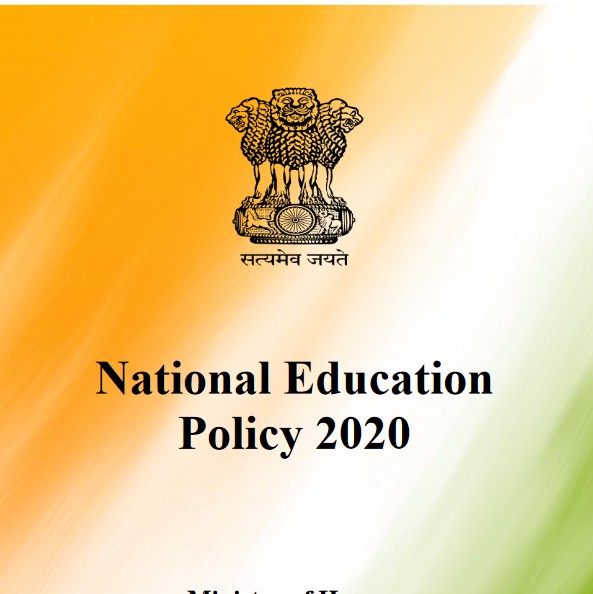Since the Union Government announced much-awaited and excited NEP-2020 in July 2020, everybody in the country: politicians, policymakers, academicians, industry, media, intellectual, and the general public, parents and other stakeholders -have started to make their multiple points and varied observations on this very important policy document which came up after a long gap three decades.
However, a major section in this group that has less articulated their views on NEP is none other than students themselves who are at the receiving end of this policy decision for their entire life.
A major shift in the NEP is its flexibility and learner-centric approach for wider inclusion of students from across this uneven Indian society to learn and earn in the future. In that sense, it is a positive aspect of this report.
Another feature is its strong and destined orientation to de-Mecaulayism of the Indian education system and introducing it with Indian ethos and values to compete with global challenges, but not to surrender the same, that did it in the past to imitate it to compromise our civilizational strength.
Bold approach
This is a very welcoming step and bold approach as far as the young and dynamic educated populace of India is concerned. However, a major point that is missing in this report is its intentional silent about educational grooming and withering of interest of students on their subject of study at graduate, and, to a great extent at the post-graduate level when it comes to career and life.
The fundamental issue here is, particularly students after their professional courses like engineering and medicine, law, etc. at public-funded central and state institutes and universities with the tag of the centre of excellence and high all India rankings, they opt for an entirely different path for career and profession which is very important for both the individual and country.
Students, who secured a birth after a stiff competition at elite and institutes of excellence like, IITs, IIITs, IIMs, NITs, AIIMS, JNU, DU, BHU, HCU, and other central universities, after their continuous schooling, and educational and extra-curricular support, from both family and schools, they have been leaving their earlier choice of the subject of study/area at graduate level for taking up another course/subject to get a career neither related to their previous education nor studied in the past.
Leaving earlier choice
This tendency is very much evident in certain disciplines like engineering. Yes, from the standpoint of students and family, there is nothing erroneous in this diametrical move for a good and secure life ahead. No doubt, that it is their personal choice and their fundamental rights to choose any discipline to get realise their educational potential which they like to pursue in life whereas the state can’t, and shouldn’t dictate.
However, the pertinent question here is why our highly talented engineers becoming managers in the corporate and public sectors. Besides that, they are joining as banking professionals and financial experts or business fields also. Similarly, many medical graduates are joining into administration and governance and leaving a highly respecting and rewarding profession to become bureaucrats.
One reason for this jump may be the highly entrenched bureaucratic nature Indian state which sees development and progress is largely driven by state and through its apparatus. Hence, acquiring a high position and holding power in this hierarchical structure would give more advantages and self-satisfaction rather than seeking a career in their field of study.
These above-mentioned matters need to be thoroughly addressed by the policymakers and educationists when we start to implement the NEP. Otherwise, the country will again lag far behind decades when India going to compete with other countries like the US, UK, Japan, China, Singapore, and Germany in the field of a global standard of education, research, and innovation.
Technical education
Most of our best technical institutes which are supposed to, and designed to produce, best engineers, and technical experts for the country, have become a safe zone to get into IIMs for management degrees. This issue has two important aspects. The first one is related to educational planning, and the second one is a student’s discontinuation of a subject who studied at a very young and resplendent age for a good career and life with huge public investment and resource utilisation.
Many of them are becoming bureaucrats and administrators after brilliantly completing their studies in medicine or related subjects. A major issue here is why are they shifting their path of education after so much of resource and energy is spent, both by state and family? Is it because their interest is lost somewhere in between their study? Or is it the discipline that is not ensuring a secure career ahead? This issue needs deep introspection by the teachers, educationists, policymakers, and parents as well.
Yes, one can easily defend this contentious matter as their personal interest and individual choice based on circumstantial influence or peer experience. But, the policymakers cannot leave it as unattended. Because education is a public resource; particularly higher education at graduate level plays a key role in shaping and setting the future of education in India in the 21st century. Unless and until we address these issues, we won’t be able to achieve the desired objectives of NEP.
We cannot be complacent and shift the entire point to “student’s choice”, but the real point of debate needs to start with the participation of all stakeholders at multilevel to address these issues. Otherwise, we have to wait for another NEP.





